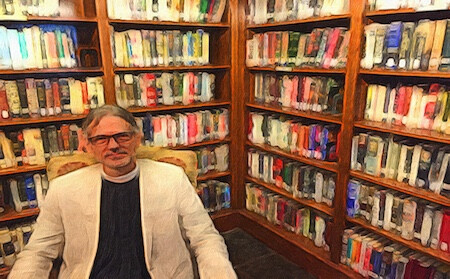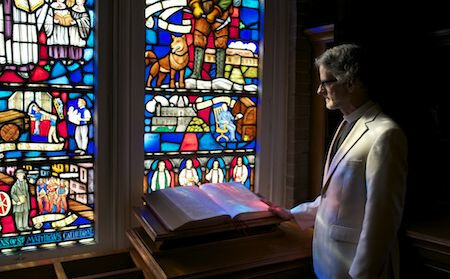Rapture?

One of my favorite walks these days is to get on the Katy Trail—that abandoned train line that runs for 3.5 miles up from the center of Dallas—and meditate on the morning’s scripture readings. Back in New York, there was a rock outcropping in Central Park that drew me to the same end. As the sky turns from black to grey to blue-pink to dull yellow (all those shades of color for which I wish I knew the names!), one’s heart turns from self-absorption to wonder, from many concerns to thanks to praise.
The birds beat me to it—the praise, I mean. Every morn they are out there greeting the newness and glorifying the one who makes it, the “re-creation of the new day.”
---
No matter how early I get out there, others are ahead of me. But there was one day, Saturday, December 31, when I found myself completely alone. I walked at least a mile, and saw no one. It was dark still, maybe 6 o’clock.
“Where is everybody?” The mind turns over the possibilities, as the heart probes its secret dreads. Could it be that God has taken away all the others, and that I have been left alone?
---
Rapture theology is bogus, of course. N. T. Wright has demonstrated that being caught into the air in order to greet the Lord when he returns means that our Lord will not have to enter our city alone: his people will come out to greet him, and bring him in. So we need to hold 1 Thessalonians together with the final chapters of Revelation: that heaven comes down to earth, in the end, and that there is a marriage of the two.
We don’t escape the world, ever. The world gets transformed by God, as his will gets done on earth as in heaven.
---
So the theology is bogus, but this theologian’s heart knew its worry. Of a certainty, no one (else) is on the Katy Trail this early morning because everyone else, now sleeping in, will be up until midnight, bringing in the new year. Yes, but the heart still needs its assurances. “You won’t forget me, will you? You won’t go off without me? I can come and stay with you, right? Or, you’ll come back and stay here, right?”
The heart wants to know if it’s true: He will come again to judge the quick and the dead. And his kingdom will perdure without end.
Just then, as if in answer, as I turned back to home, I saw someone else on the trail.
---
Out & about. This Sunday, February 5, is my final class session on “Strange but True Things about God.” The topic this week is prayer. What sense can it make to be talking to the creator? Harry Potter cannot talk to J. K. Rowling! And more, what sense is there in making requests to the author of all things? And so forth. The class is in room 119 of the education building at Church of the Incarnation, 3966 McKinney, Dallas. It runs from 10:20 to 11:05.
Recordings of previous class sessions are eventually posted on this page: https://incarnation.org/class-recordings/
On Sunday, February 12, I will be at Church of the Holy Cross, 4052 Herschel Ave., Dallas. I will speak about “Losing Susan” at 9:30, and preach at 10:30.


